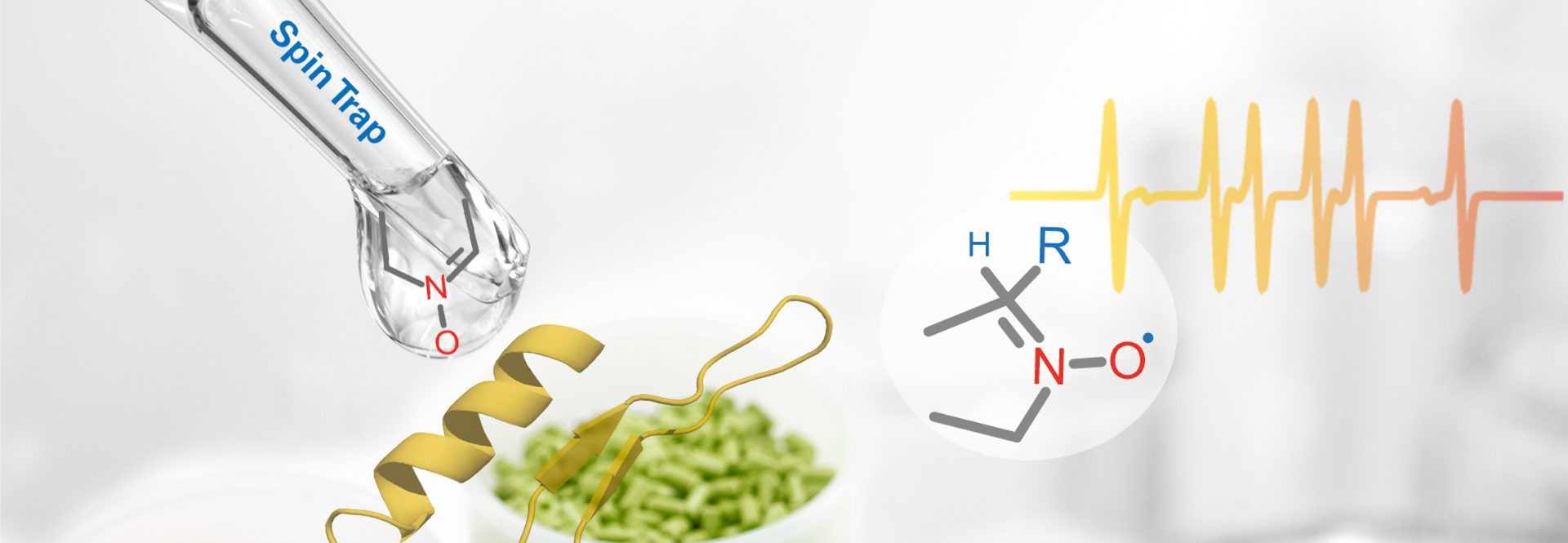

Short-lived radicals detected with spin traps and probes using electron paramagnetic resonance (EPR)
Webinar Overview
Many free radicals species are highly reactive, with relatively short half-lives, and direct detection in solution by electron paramagnetic resonance (EPR) spectroscopy is challenging. Using spin traps and probes in EPR is an effective method that offers a solution to this challenge.
This webinar will provide an overview of two EPR techniques using spin traps and probes that enable detecting, identifying, and quantifying short-lived radicals such as reactive oxygen and nitrogen species (ROS and RNS). Spin traps are compounds that react covalently with highly transient free radicals to form relatively stable, persistent spin adducts that also possess paramagnetic resonance spectra detectable by EPR spectroscopy. In contrast to spin traps, spin probes do not ‘trap’ radicals, but are oxidized by ROS or RNS to form nitroxides (free radicals) with a half-life of several hours, which can readily be detected by EPR. Examples, sample preparation and data interpretation will be discussed.
Tuesday, May 17, 2022
10:00 AM in EDT / 4:00 PM CEST
What you will learn
- Basics of spin traps and probes and their various applications
- Advantages and disadvantages between spin traps and spin probes
- Examples of reaction monitoring, radical identification, and quantitative analysis with SpinFit and SpinCount modules
Speakers
Dr. Kalina Ranguelova
Senior EPR Applications Scientist, Bruker BioSpin
Dr. Kalina Ranguelova has been an EPR Applications Scientist at Bruker BioSpin Corporation since 2011. She completed her Ph.D. at the Bulgarian Academy of Sciences, where her research focused on the structure of inorganic copper complexes using electron paramagnetic resonance (EPR) spectroscopy. After holding research positions at CUNY and the National Institute for Environmental Sciences, where she studied free radical biology and EPR spin trapping as a method for measuring reactive oxygen species (ROS), she joined Bruker. In her current role as an Applications Scientist, she focuses on developing new applications for EPR in various fields and providing customer support and training.
Dr. Ralph Weber
Senior EPR Applications Scientist, Bruker BioSpin
Dr. Ralph Weber started his scientific training at Brown University where he received a B.A in Chemistry and German Literature and Language. He continued his training at the University of Chicago, earning a Ph.D. in chemistry focusing on EPR and ENDOR studies of proteins and lanthanide complexes. Two postdoctoral positions followed. At Leiden University in the Netherlands he studied excited states of molecules using ODMR (Optically Detected Magnetic Resonance) and designed and constructed a high frequency pulse EPR spectrometer. At MIT he studied motional dynamics in lipids via solid state NMR and was one of the original project members to design and construct a DNP (Dynamic Nuclear Polarization) spectrometer incorporating a high power gyrotron. He joined Bruker 29 years ago in 1989. He is responsible for much of the documentation for EPR and also offers customer support for pulse, high frequency, and imaging applications. He is currently co-principal investigator on a five-year NIH grant to develop pre-clinical EPR imaging technology and to promote its use in the pharmaceutical industry.